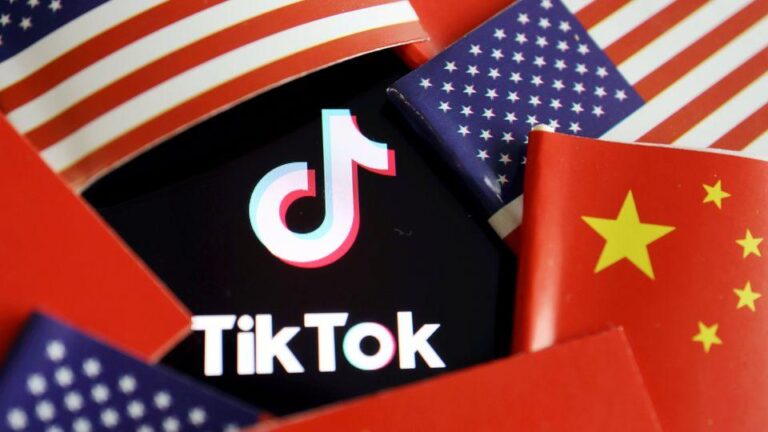Former President Donald Trump announced that Chinese President Xi Jinping has approved a deal to keep the popular video-sharing app TikTok operating in the United States. The announcement comes amid ongoing tensions over technology and data security between the two countries,as the U.S.government had previously sought to restrict TikTok’s presence due to national security concerns. This development marks a significant step in the complex negotiations surrounding the app’s future in the American market.
Trump announces Xi Jinping’s approval of TikTok deal for U.S. operations
Former President Donald Trump confirmed that China’s President Xi Jinping has given his green light to a landmark agreement that will secure TikTok’s continued operation in the United States. This deal represents a significant breakthrough amid rising tensions over data security and geopolitical concerns surrounding the popular social media platform. The arrangement is expected to involve stringent oversight measures and potential U.S. partnerships to safeguard user data while preserving the app’s accessibility for millions of American users.
The deal outlines several key components aimed at balancing national security with commercial interests, including:
- Establishment of a U.S.-based data governance structure
- Collaboration with American firms for technology oversight
- Regular audits to ensure compliance with privacy standards
- Clear provisions to protect user data from foreign interference
| Aspect | Details |
|---|---|
| Data Security | U.S.-based storage and management |
| Regulatory Oversight | Frequent audits by independent bodies |
| Ownership | Partial U.S. stakes in operations |
| Implementation Timeline | Within six months of agreement |
Implications of the TikTok agreement on US-China tech relations
The agreement to keep TikTok operational in the U.S. under a new ownership structure signals a rare moment of cooperation amid growing tensions in US-China tech relations. This deal, reportedly approved by President Xi Jinping, establishes a precedent where geopolitical considerations are balanced against commercial interests and national security concerns. It also highlights Washington’s nuanced approach – seeking to regulate rather than outright ban Chinese tech platforms – while Beijing gains a cautious but significant concession by maintaining a stake in one of the world’s most influential social media apps.
Key implications for tech diplomacy and trade include:
- Precedent for cross-border tech partnerships that could ease the severity of decoupling efforts.
- Potential framework for future negotiations involving data security, intellectual property, and market access.
- Increased scrutiny of foreign investments by U.S. regulators, balanced by a willingness to allow operations under strict oversight.
| Impact Area | Potential Outcome |
|---|---|
| US Tech Policy | More rigorous vetting of Chinese investments |
| China’s Market Access | Sustained foothold in US digital sphere |
| Bilateral Tech Relations | Opportunities for dialog amidst rivalry |
Analysis of the potential impact on TikTok users and privacy concerns
The anticipated deal to keep TikTok operational in the U.S. following approval from China’s Xi Jinping could substantially reshape the user experience and raise critical privacy questions. Users may enjoy uninterrupted access to the platform, but the arrangement brings to the forefront concerns about data sovereignty and the potential for increased government oversight. TikTok’s vast repository of user data, including location, usage patterns, and personal details, makes privacy safeguards paramount. The governance structure under the new deal will be closely scrutinized to determine whether it effectively isolates U.S. user data from foreign access or if vulnerabilities remain.
Key privacy implications include:
- Data Storage and Access: Clarification on where data will be stored and who has access is crucial.
- Transparency Measures: Users and regulators demand clear reporting on data handling practices.
- Third-Party Audits: Independent audits might potentially be necessary to ensure compliance with privacy standards.
The balance between maintaining a seamless user experience and enforcing stringent privacy controls presents a complex challenge for stakeholders involved. The upcoming framework’s effectiveness in addressing these concerns will be pivotal in shaping public trust and the platform’s future viability in the competitive social media landscape.
Expert recommendations for regulatory oversight and future tech negotiations
As geopolitical tensions continue to shape technology markets, experts emphasize the necessity of strengthening regulatory frameworks to oversee future tech agreements effectively. Analysts suggest that transparency in negotiations is crucial, with clear mandates for data privacy, intellectual property protections, and national security concerns. They advocate for the establishment of independent oversight bodies that can monitor compliance and swiftly address any breaches without political interference. Furthermore, collaboration between the U.S. and international partners is highlighted as a key factor in creating a balanced approach to tech governance that respects sovereignty while fostering innovation.
Looking ahead, industry specialists recommend several strategic measures for managing cross-border technology deals:
- Regular bilateral communication channels to preempt conflicts and clarify expectations.
- Adaptive legal frameworks that can evolve alongside rapidly changing technologies.
- Standardized data security protocols to minimize vulnerabilities.
- Joint task forces combining government and private sector expertise for nuanced risk assessment.
| Key Recommendation | Expected Outcome |
|---|---|
| Independent Oversight Bodies | Enhanced regulatory accountability |
| Bilateral Communication Channels | Reduced diplomatic tensions |
| Adaptive Legal Frameworks | Future-proof regulation |
| Joint Task Forces | Comprehensive risk mitigation |
Future Outlook
The confirmation of Chinese President Xi Jinping’s approval marks a critical development in the ongoing efforts to secure TikTok’s continued presence in the United States.As details of the deal remain closely watched by policymakers and industry leaders alike, the outcome could set a precedent for future negotiations between American tech companies and Chinese regulators. With the potential resolution of this high-profile dispute, both governments appear poised to navigate a path forward amid broader tensions over technology and national security.




